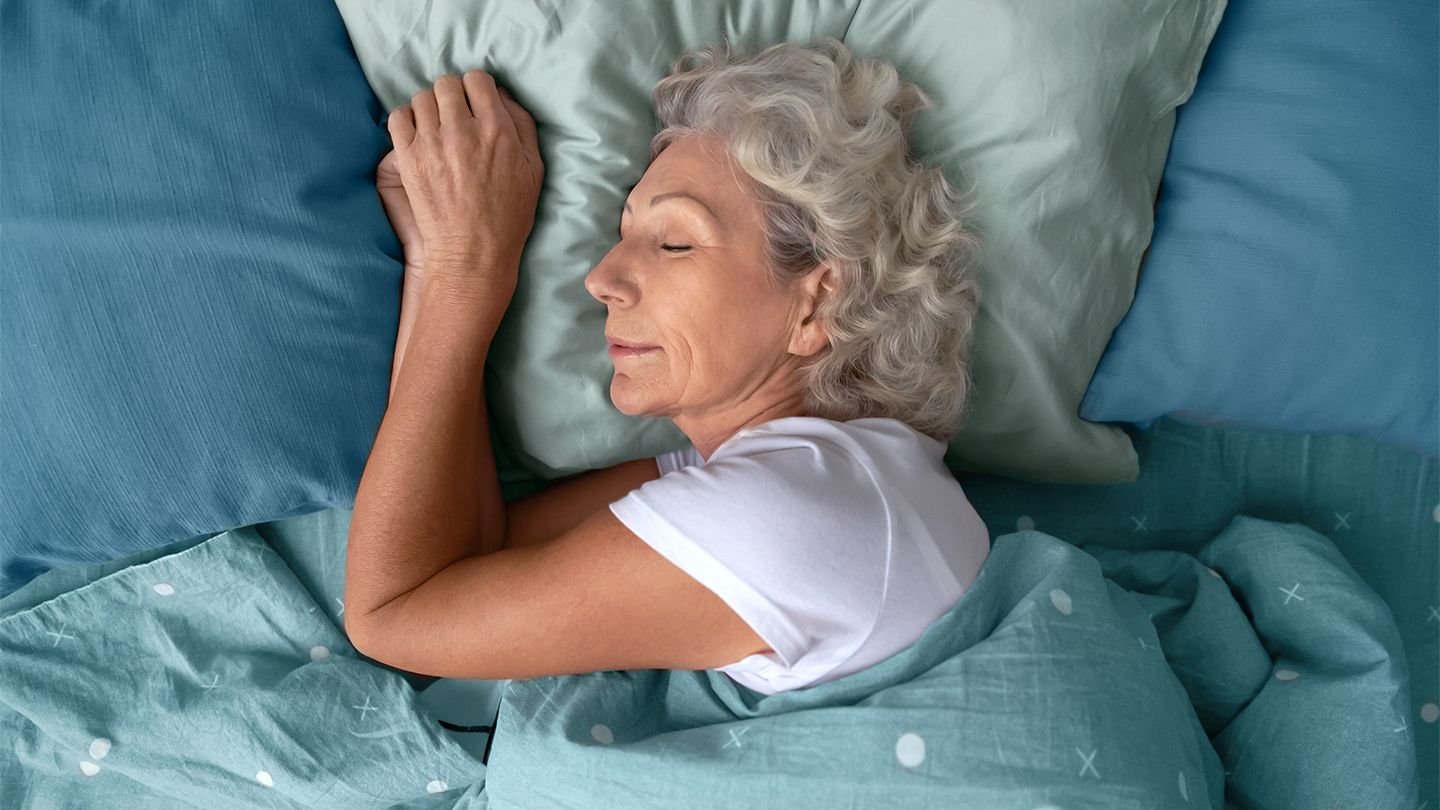Tips for Improving Sleep During Menopause

Menopause, a natural biological process marking the end of a woman’s reproductive years, brings about a multitude of changes, including hormonal fluctuations that can significantly impact various aspects of health. Among these changes, disruptions in sleep quality are prevalent and often challenging to manage.
As women transition through menopause, hormonal shifts, particularly the decline in oestrogen levels, can disrupt the body’s internal clock and disturb sleep patterns. These disruptions may manifest as difficulty falling asleep, frequent awakenings during the night, or early morning awakenings, leading to poor sleep quality and daytime fatigue.
Addressing sleep issues during menopause is important for overall well-being. Quality sleep is important for maintaining your overall health and wellbeing. Sleep disturbances during menopause can worsen symptoms such as hot flushes, mood swings, and irritability, further impacting quality of life and overall functioning.
Menopause supplements can help relieve symptoms that are disruptive to sleep, such as night sweats. These supplements often contain natural ingredients that support hormone balance to target disruptive menopausal symptoms, which may improve sleep quality. Many women find relief from sleep disturbances by incorporating these supplements into their wellness routine.
In this article, we delve into the connection between menopause and sleep quality, exploring the underlying mechanisms, common sleep disturbances experienced during this transitional period, and strategies for effectively managing sleep issues to promote better health and well-being during menopause. By understanding and addressing sleep disturbances, women can navigate the menopausal transition with greater ease and enjoy a better quality of life.
How Menopause Affects Sleep
Menopause, a natural biological transition marking the end of a woman’s reproductive years, is characterised by hormonal fluctuations that can profoundly impact sleep patterns and quality. Understanding how menopause affects sleep is important for effectively managing sleep disturbances during this transitional period. Here are several ways in which menopause can influence sleep:
- Hormonal Changes: The decline in oestrogen and progesterone levels during menopause can disrupt the body’s internal clock, leading to changes in sleep architecture. Oestrogen plays a role in regulating body temperature and sleep-wake cycles, so its decline may contribute to sleep disturbances.
- Night Sweats and Hot Flushes: One of the hallmark symptoms of menopause is the occurrence of night sweats and hot flushes, which can disrupt sleep by causing awakenings during the night. These sudden surges in body temperature can lead to discomfort, making it difficult to maintain uninterrupted sleep.
- Sleep Quality: Menopause is often associated with changes in sleep architecture, including alterations in sleep stages and reduced sleep efficiency. Rapid eye movement (REM) sleep may be affected, leading to changes in dreaming patterns and overall sleep quality. These changes can contribute to daytime fatigue and impaired cognitive function.
- Psychosocial Factors: Menopausal symptoms, such as hot flushes, night sweats, and mood disturbances, can significantly impact psychosocial well-being and quality of life. Stress and worry related to menopausal symptoms can further disrupt sleep, creating a vicious cycle of sleep disturbances and emotional distress.
Tips for Improving Sleep During Menopause
1. Establish a Consistent Sleep Schedule:
Go to bed and wake up at the same time every day, maintaining a consistent sleep schedule. Consistency helps regulate your body’s internal clock, promoting better sleep quality and overall well-being.
2. Create a Relaxing Bedtime Routine
Engage in calming activities before bed, such as reading a book, taking a warm bath, or practising gentle yoga. Avoid stimulating activities and screens (like smartphones or TV) that can disrupt sleep and increase alertness.
3. Manage Stress
Practice stress-reduction techniques such as deep breathing exercises, progressive muscle relaxation, or meditation. Consider seeking therapy or counselling to address underlying stressors or anxieties that may be impacting your sleep.
4. Pay Attention to Your Bedroom Environment
Arrange your bedroom for sleep by keeping it cool, dark, and quiet. Use blackout curtains, white noise machines, or earplugs to minimise disruptions and create a conducive sleep environment. Invest in a comfortable mattress and supportive pillows that accommodate your changing sleep needs during menopause.
5. Consider Menopause Supplements
Consult with your healthcare provider about the potential benefits of menopause supplements for improving sleep. Look for supplements containing natural ingredients like ashwagandha or Siberian Rhubarb root extract, which can help support sleep quality and relaxation. Ensure that any supplements you consider are safe and appropriate for your individual health needs, and discuss any potential interactions with other medications you may be taking.
By incorporating these tips into your daily routine, you may help manage sleep disturbances during menopause and support your overall sleep quality, supporting your health and well-being during this transitional period. Remember to consult with your healthcare provider for personalised guidance and recommendations tailored to your specific needs and circumstances.
Conclusion
Recognising the importance of addressing sleep disturbances during menopause is important, as quality sleep plays a vital role in your overall well-being. By prioritising sleep and implementing strategies to improve sleep quality, women can mitigate the negative effects of sleep disturbances on their overall health and quality of life.
To manage your sleep, try the suggested tips and techniques while remaining open to seeking professional assistance if needed. Consulting with a healthcare provider or sleep specialist may provide personalised guidance and recommendations tailored to individual needs, helping women effectively manage sleep issues and navigate through the menopausal transition with greater ease and comfort.








